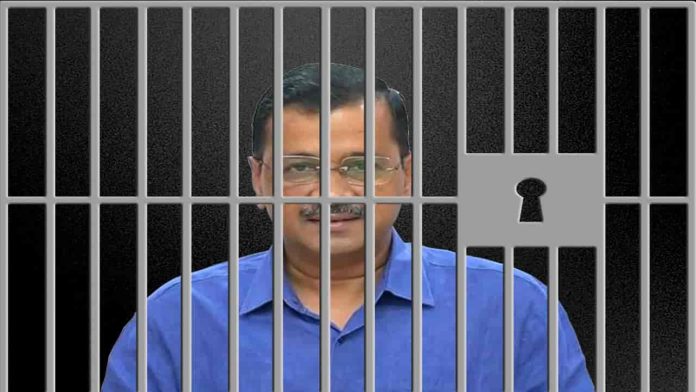Delhi Chief Minister Arvind Kejriwal has moved the Supreme Court, challenging his arrest by the Central Bureau of Investigation (CBI) in the Delhi liquor policy scam case, and seeking release on bail.
Senior Counsel Abhishek Manu Singhvi mentioned the matter before Chief Justice of India DY Chandrachud on Monday, seeking urgent listing of the matter.
The CJI directed him to send a mail in this regard.
Filed through Advocate Vivek Jain, the petition challenged the August 5 order of the Delhi High Court, which refused to quash Kejriwal’s arrest and directed the national convenor of the Aam Admi Party (AAP) to approach the trial court for relief.
Kejriwal had filed two separate petitions before the High Court, seeking bail and challenging his arrest by the CBI.
The single-judge Bench of Justice Neena Bansal Krishna dismissed the plea seeking to quash the arrest, saying that there were adequate grounds to arrest Kejriwal. Regarding bail, the High Court refused to pass its verdict on merits and asked Kejriwal to move the trial court instead.
The petition filed before the Apex Court contended that the High Court abdicated its function by relegating the matter to the trial court, though it had concurrent jurisdiction to decide on his bail petition.
It said the High Court rendered the order in a perfunctory and mechanical manner, neglecting the foundational principles of law and disregarding the plethora of judicial precedents laid down by the Apex Court, which unequivocally affirmed that the High Court possessed concurrent jurisdiction to entertain bail applications.
Despite this settled legal position, the High Court abdicated its jurisdiction, resulting in a grave miscarriage of justice by denying the petitioner the relief of regular bail, it added.
Kejriwal submitted that the High Court’s decision to relegate the petitioner was all the more tenuous, given that the High Court itself acknowledged the relevance of several judgments, both of the Apex Court and various High Courts, which support the exercise of concurrent jurisdiction.
He further pointed out that there was no chance of the trial concluding in the near future and that most of the co-accused have been granted bail.
The Delhi Chief Minister highlighted the fact the Supreme Court had granted him interim bail in the case filed under the Prevention of Money Laundering Act (PMLA), where conditions for the grant of bail were more stringent.
The petition further said that he was granted regular bail by a Special Judge in the PMLA matter. Therefore in the present case (CBI case), the petitioner ought to be released forthwith, it added.
The Directorate of Enforcement had arrested Kejriwal on March 26 under PMLA, in connection with alleged irregularities in the now-scrapped Delhi Excise Policy 2021-22. He was subsequently arrested by CBI on June 26 under the Prevention of Corruption (PC) Act.
The national investigating agencies alleged that Kejriwal and other AAP leaders hatched a criminal conspiracy to create loopholes in the Delhi Excise Policy to favour some liquor sellers. Both ED and CBI alleged that the proceeds of the crime were used to fund the AAP’s election campaign in Goa.
Though Kejriwal was granted interim bail by the Supreme Court in the ED case, he continued to remain in jail in the CBI case.
The Supreme Court recently granted bail to AAP leader and former Deputy Chief Minister of Delhi, Manish Sisodia, in connection with the same case. The Apex Court noted that the prolonged delay in trial had violated the right to speedy trial of Sisodia, which was a facet of liberty under Article 21 of the Constitution.
The top court of the country observed in Manish Sisodia’s case that both the High Courts and the trial courts appeared to be playing it ‘safe’ when they routinely denied bail in criminal cases instead of granting bail as the norm.


